News
Wisconsin latest state to face marriage lawsuit
‘Evasion’ statute prohibits couples from going elsewhere to wed
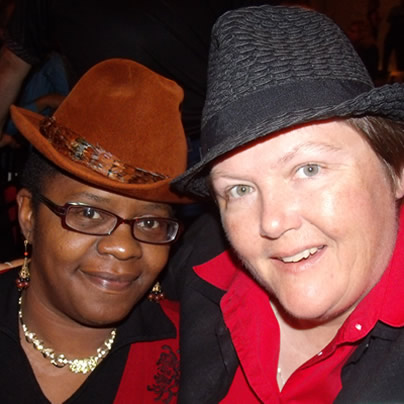
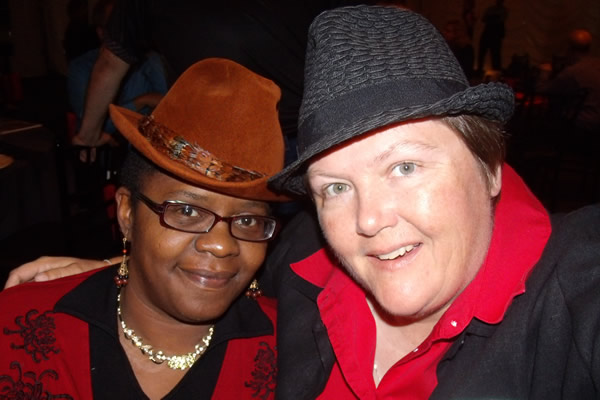
Charvonne Kemp (left) and Marie Carlson filed a lawsuit in Wisconsin seeking marriage rights. (Photo courtesy of the American Civil Liberties Union)
Same-sex couples in Wisconsin joined others throughout the country on Monday in filing a lawsuit seeking same-sex marriage, but efforts there are unique because of the penalties for marrying in another jurisdiction.
The litigation seeks not only to overturn the state’s 2006 constitutional amendment barring same-sex marriage, but also to enjoin state official from enforcing a “marriage evasion law” prohibiting couples — gay and straight — from going elsewhere to marry if the marriage would be prohibited in the state.
The penalties of violating the marriage evasion law in Wisconsin, which is the only state to have such a statute, include up to $10,000 in fines and nine months in prison.
For Marie Carlson, one-half of one of the couples participating in the lawsuit, the marriage evasion law is of concern as she seeks recognition of her relationship with Charvonne Kemp.
“It’s illegal in the state Wisconsin to go another state and get married if you live here,” Carlson said. “I know that it’s not really all that enforced; it’s still something that hangs over your head.”
The marriage evasion law is particularly problematic for same-sex couples in Wisconsin because the Obama administration in most cases has elected to recognize same-sex marriages even if the state doesn’t recognize them — provided these couples are able to marry in a jurisdiction that allows it.
John Knight, a staff attorney with the American Civil Liberties Union’s LGBT project, called the marriage evasion law a “Catch-22” for same-sex couples living in Wisconsin who want to marry.
“Wisconsin is unique in that sense, and so we think that argument particularly exemplifies the harm or the animus toward same-sex couples in some parts of the country,” Knight said.
But for Kemp, it’s not the fear of prosecution for marrying elsewhere that compels her to seek the right marry in Wisconsin, but the ability to wed in the state where she’s lived with her partner for seven years and raised two sons.
“We’re completely in love, and we’d like to be married in the state that we live in,” Kemp said. “We do have options where we could obviously leave the state and go to other states and get married, but we want to be legally recognized where we live.”
The lawsuit, Wolf and Schumacher v. Walker, was filed by the ACLU, the ACLU of Wisconsin and Mayer Brown LLP and is pending before the U.S. District Court for the Western District of Wisconsin.
Like other lawsuits filed throughout the country, the 29-page complaint filed by the groups in Wisconsin alleges the state’s ban on same-sex marriage violates equal protection and due process under the Fourteenth Amendment to the U.S. Constitution.
“Although Wisconsin and this country have taken some steps to reduce discrimination against lesbians and gays, Wisconsin’s ban on marriage for same-sex couples is a striking and continuing vestige of the long history of discrimination toward lesbians and gay men,” the complaint says.
The lawsuit was filed on behalf of four same-sex couples seeking to marry in Wisconsin. Along with Kemp and Carlson, who reside in Milwaukee, they are: Virginia Wolf and Carol Schumacher, who reside in Eau Claire, Wis.; Roy Badger and Garth Wangemann, who live in Milwaukee; and Judith “Judi” Trampf and Katharina “Katy” Heyning, who live in Madison.
Although Wisconsin offers same-sex couples the ability to join in a domestic partnership, enacted in the state in 2009, they don’t offer same the legal rights as marriages.
Carlson said the union isn’t enough because that union provides little assistance beyond certain health insurance benefits — and that’s only if the insurance company recognizes the partnership.
“It also goes along with the fact that last like year, Charvonne’s mother passed away, and we all had to go to New Jersey for a week,” Carlson said. “I had to use vacation time because…the company I work for didn’t recognize she was legally my partner, so I didn’t get bereavement to be able to go. So, I had to use a week of my vacation.”
The office of Wisconsin Gov. Scott Walker (R) didn’t immediately respond to the Washington Blade’s request to comment on the lawsuit.
Wisconsin Attorney General J.B. Van Hollen, however, pledged in a statement to the Blade that he would the defend the marriage amendment.
“This constitutional amendment was approved by a large majority of Wisconsin residents,” Van Hollen said. “I believe the amendment is constitutional, and I will vigorously defend it.”
The Wisconsin litigation is among 40 pending lawsuits in 22 states throughout the country seeking marriage rights for gay couples.
Amid expectations that one will soon reach the U.S. Supreme Court for a final ruling on marriage equality, Knight said it’s possible, but he wouldn’t bet on it.
“It’s one of the possibilities it might go to the Supreme Court, but the chance of that in light of all the other cases out there is probably fairly small,” Knight said. “But it could be.”
Nonetheless, if Walker continues to fight the lawsuit and a high court ruling doesn’t happen before the case is resolved, Kemp said she’s willing to take her case to the Supreme Court to fight for marriage rights across the country if necessary.
“I’m willing to go to the Supreme Court to fight for the right for everyone to be able to get married if that’s what they choose to do,” Kemp said. “It’s about marriage equality for all, not marriage equality for some, or for just us.”
For Kemp, the ability to marry in Wisconsin is not just about the legal rights that marriage would afford, but the dignity of having the access to the same union as other couples.
“However, I want to be married just like everyone else. I want it to be legal, not just for if one of us should get sick and having rights where we’re in the hospital with the other one, but also taxes, all the things that come with marriage, good and bad,” Kemp said.
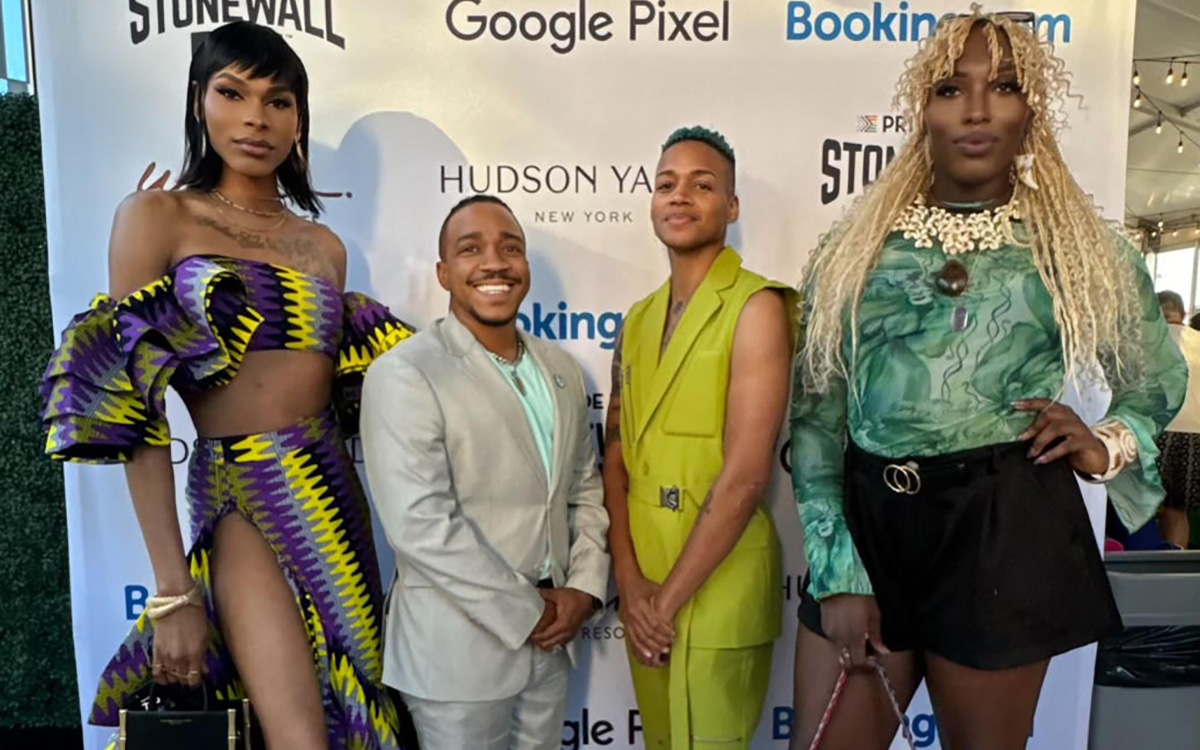
It is common knowledge that women earn 84% of the average worker. Less common knowledge? Trans women earn 60% of the average worker. Trans men and non-binary people come in at around 70%, while 16% of all trans people make less than $10,000 annually.
E.C. Pizarro was lucky, and he knew it. He had a BFA in graphic design and had taught himself how to code. As a stealth trans man in a corporate job, he had access to a stable wage and good benefits. “People that do not have experiences in corporate America or with equitable employment don’t realize [these things] are privileges that a lot of people don’t have access to.”
He wanted to give back and was gearing up to bring more volunteer work into his life by participating in a fraternity for trans men. When he went to a TransTech event and learned about the educational and career resources for trans people who face barriers to entering the workforce, he knew he had found his place.
At the event he met, Angelica Ross. Yes, that Angelica Ross, of “Pose” and “American Horror Story.”
Before she was Candy, Ross was a self-taught coder. She went from posing for an adult website to doing its back-end coding to teaching her trans siblings how to succeed in tech.
“Technology was the key to my freedom,” Ross said in an interview with The Plug. “Technology took me from being exploited on someone’s website to building my own websites and to building websites for other people and getting paid to do so.”
Pizarro was impressed and wanted to help. “I went up to Angelica and I was like ‘Hey, I’m a trans man. These are my skills. I’m down to volunteer and do any type of work—the one caveat is that I’m stealth. You can’t tell anybody that I’m trans.’”
For four years, Pizarro helped from mostly behind the scenes, sometimes getting side-eyed since people thought he was a cis man in trans spaces. “I was still stealth as the Director of Social Media and Communications for the National Trans Visibility March in 2019,” Pizarro says, chuckling a little.
But by that point, Ross — who headlined the 2019 march — was overextended trying to balance being a world-famous actress, advocate, and businesswoman.
She needed someone to step in as executive director of TransTech and looked to the group of dedicated volunteers. Pizarro was elected by his peers to take the reins of the organization.
This was a turning point for Pizarro. “I’m very passionate about tech and for me a small sacrifice of being open with my trans experience to liberate other trans people,” he said. “I felt like if that’s something I got to do, then I’m gonna do it.”
And he did it. The infrastructure Ross put together worked: with mentorship, education, community, and networking with trans-accepting employers, trans people were gaining financial security and independence.
So, Pizarro focused on expanding TransTech as widely as possible. “We have grown exponentially over the last three years,” he says. “When I took over in 2021, we had about 800 members based in the United States. Now we support over 6,700 members across 50 countries.”
TransTech is filling a demonstrated need within specifically the trans community. New research from LGBT Tech found that 68% of transgender adults use the internet to find LGBTQ-friendly employment (compared to 38% of cisgender LGBTQ+ adults). More than 70% of all LGBTQ adults use the Internet to access educational content.
Accessibility is central to the TransTech programming. Despite the growth, everything remains free. “There’s no membership fee. All of our programming is free. All of the certifications and educational resources are free,” Pizarro says.
They know the financial burden the trans community faces — 29% of trans adults live in poverty. “If we’re asking anyone to up-skill [for a cost] and these are the things they are going through, we are asking them to invest in their future versus their meal today.”
Pizarro believes that accessibility is more than just making the training free. He wants the community to understand that tech work is something they are innately capable of doing.
“TransTech was built on the foundation of nontraditional tech. It’s not always coding. It’s graphic design. It’s social media. It’s video editing. It’s anything that uses a piece of technology and nowadays almost everything uses a piece of technology,” says Pizarro.
He emphasizes to participants: “You’re in tech and you don’t even know it,” pointing out how many already utilize tech skills like marketing and monetization with their social media accounts.
Some people involved in the programming are nervous about entering the “tech world” because of headlines about tech layoffs. He makes sure to emphasize that unlike in some other jobs, tech companies often pay generous severance packages, which gives employees “breathing room.” Pizzaro explains that “once you have experience with one tech company, you can go someplace else and make a substantial amount of money as well.”
While TransTech is designed for the gender-diverse community, the programming is open to everyone Pizarro explains. “We just ask that you don’t be transphobic.” (Or any of the other -phobics too, he says, listing them off.) He also emphasizes that this allows trans members who are not out to comfortably participate.
Pizarro wants everyone to understand that they don’t just belong in tech, but they make tech better. “Tech is most profitable when you have diverse people building the tech and using the tech,” Pizarro says. “There is an intentional funding as well as support to diversity tech because they understand how that impacts the product.”
He also reminds participants that they have developed transferrable skills in every part of their lives. “I like to tell people if you can manage your life as a trans person in the United States or anywhere you can manage a project.”
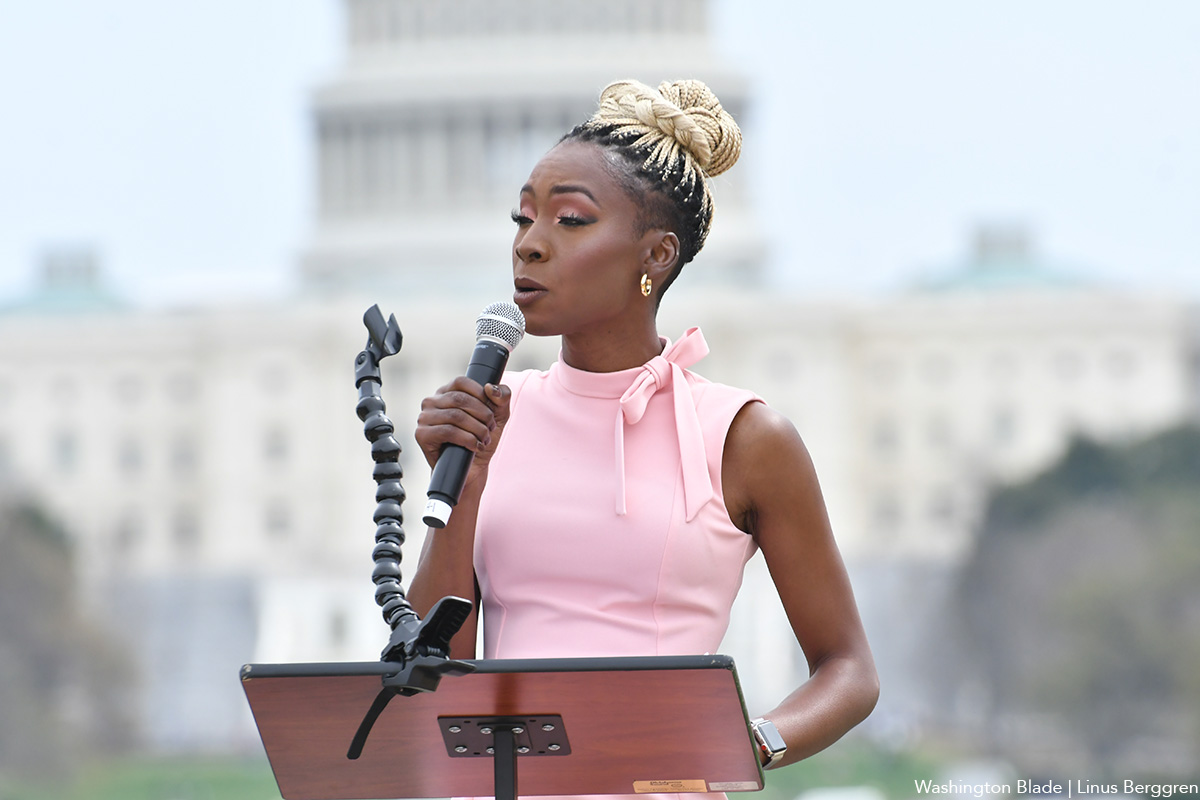
District of Columbia
Fire by arson forced temporary shutdown of Glorious Health Club
Spa and art gallery catering to gay
men expects to reopen in August
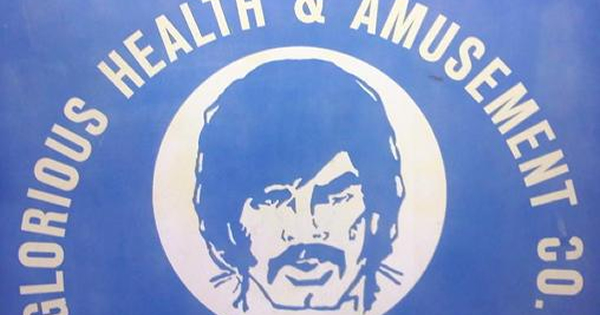
In a little noticed development, D.C.’s Glorious Health Club, which bills itself as a spa, art gallery, and community center catering to gay men, was forced to close on May 19 after one or more unidentified suspects ignited a fire inside the club that D.C. fire department officials have ruled an act of arson.
Robert Siegel, the club’s owner, told the Washington Blade that he and investigators with the D.C. Fire and Emergency Medical Services Department believe one or more yet unidentified suspects broke into the kitchen of the former warehouse building where the club is located at 2120 West Virginia Ave., N.E.
According to Siegel, investigators with the fire department’s arson squad believe a flammable liquid was used to start the fire in the kitchen and in two other locations within the building.
“Three separate fires were started,” Siegel said. “They started one on a staircase and one on the upstairs storage area,” he said in addition to the one in the kitchen. He said about 40 patrons were in the club at the time the fire started, and all were able to leave without injury.
Siegel said the fire caused $500,000 worth of damage to his building, with some of the damage caused — understandably he said — by fire fighters who had to rip open doors and break through the roof to gain access to the flames that engulfed parts of the interior of the building. He said he arranged for repair work to begin after the fire was extinguished.
“I expect we’ll be reopening in about a month from now,” he said. “And we’ll be a bigger and better place.”
Fortunately, Siegel said, most of the artwork and art exhibits located in the club were not damaged.
“It was basically the kitchen, patio, and the roof,” he said, adding that much of the solar panels he had on the roof were destroyed by the fire or by firefighters seeking to gain access to the building.
“And the fire was so hot it did structural damage to the roof,” he said. “It actually melted steel. We’re talking about 50-foot steel beams that have to be replaced,” he told the Blade. “That’s $100,000 right there.”
Vito Maggiolo, a spokesperson for the D.C. Fire and Emergency Medical Services Department, said the fire was “ruled incendiary/arson” and is “under active investigation.”
It could not immediately be determined if one or more people responsible for the fire targeted the Glorious Health Club because it’s a gay community establishment.
South America
Chilean capital Pride parade participants, activists attacked
Men wearing hoodies disrupted June 29 event in Santiago

A group of hooded men on June 29 attacked LGBTQ activists and others who participated in the Chilean capital’s annual Pride parade.
Witnesses said the men punched and kicked activists and parade participants, threatened them with a skateboard, threw stones and paint at floats and damaged parade infrastructure. The men also broke a truck’s headlight.
The Movement for Homosexual Integration and Liberation, a Chilean LGBTQ rights group known by the acronym Movilh, strongly condemned the acts of violence, calling them deliberate attempts to disrupt a peaceful and safe demonstration.
“Vandalism that seeks to transgress the peaceful trajectory of our demonstrations and that is only useful to the interests of the homo/transphobic sectors,” denounced Movilh.
The attack occurred when the hooded men tried to break through the security fence protecting the participants and the truck that was at the beginning of the parade.
“As we do every year, we fence the truck with our volunteers to prevent anyone from being run over or hurt by the wheels,” said Movilh. “The hooded men approached the fence to break it, hitting our volunteers and people outside of our organization with their feet and fists who, in an act of solidarity, tried to dissuade them.”
The motives behind this attack seem to be related to previous calls on social networks to boycott the event, although the organizers stressed that violent acts are alien to the parade’s inclusive and celebratory purpose.
Movilh spokesperson Javiera Zúñiga told the Washington Blade that “after the attack that we faced during the Pride March, we published in our social networks the few images that were available from that moment.”
“What we are basically asking is that anyone who has seen something and can recognize any of the aggressors write to our email or (contact us) through our social networks so that we can file complaints and do whatever is necessary to find those responsible.”
Zúñiga stated that “not only was there aggression against people, but there was also damage to private property because they broke one of the truck’s headlights.”
“So for these two reasons we are looking for anyone who may have information to contact us,” she said.
The incident has generated widespread condemnation within the LGBTQ community and outside of it. They say it highlights the need to protect human rights and diversity and promote respect for them.
-

 Canada3 days ago
Canada3 days agoToronto Pride parade cancelled after pro-Palestinian protesters disrupt it
-

 Baltimore5 days ago
Baltimore5 days agoDespite record crowds, Baltimore Pride’s LGBTQ critics say organizers dropped the ball
-

 Politics2 days ago
Politics2 days agoHRC slams White House over position opposing gender affirming surgeries for minors
-

 U.S. Supreme Court2 days ago
U.S. Supreme Court2 days agoConcern over marriage equality in US grows two decades after first Mass. same-sex weddings









